- Answers for new parents. Until recently, a small package was brought into the house, inside of which lay a tiny little man. Days passed and the baby grew up. Young parents began to wonder if it's time to cancel the use of diapers and teach the baby to the potty?
Today there are several opinions regarding this issue:
- Planting a baby from birth. This is a rather labor intensive process. He takes into account the fact that a young mother listens very sensitively to the needs of the child. By the nature of discontent, after the advent of the time period, the mother understands that the child wants to go to the toilet. She takes the boy and holds him over a basin, a pot, a bath. Consultants for breastfeeding, it is advised to carry out the ritual of planting without taking the baby off the breast. This technique came to us from the past, from where there were no diapers and time for washing, ironing children's clothes. A baby accustomed to planting, growing up without difficulty, determines its physiological needs. At the age of 7 - 8 months he can already use the potty.
This method certainly has its advantages, but also a number of disadvantages:
- An inconvenience for a young woman. From the side, it seems that the young mother spends all the time over the bath and the pot, waiting for the next urination. Gradually, this thought comes to the mind of the mother herself.
- Discomfort for the baby. While holding the child over the basin, he wakes up, shows discontent. As a result, the baby may be irritable, the schedule of sleep and wakefulness is disturbed.
- Possibility of failure. With the formation of the nervous system of the crumbs, the baby can consciously resist going to the toilet.
- Psychological problems in the future. This point of view is supported by some psychologists who argue that early planting can result in problems in the sexual sphere in the future.
- The modern point of view of potty training for boys and girls says that it is not necessary to train a child until he reaches the age of 1.6 - 2 years. Ideally, if at 1.6 years old parents purchase a pot, relying on the choice of the baby. It is necessary to explain to the crumbs what kind of object it is and how to use it. It's a great idea to involve your child's favorite toys in the process. According to pediatricians and psychologists, the process of potty training can be fully realized only by 3-4 years, and this is due to the development of the nervous system.
Cons of the modern method:
- Erase multiple sliders.
- Big spend on diapers.
- Dissatisfaction with surrounding advisers.
- No inconvenience for mother and child.
- The appearance of a large amount of free time, which is saved due to the constant planting.
- Physiological gradual maturation of the baby. Absence of psychological problems in the future.
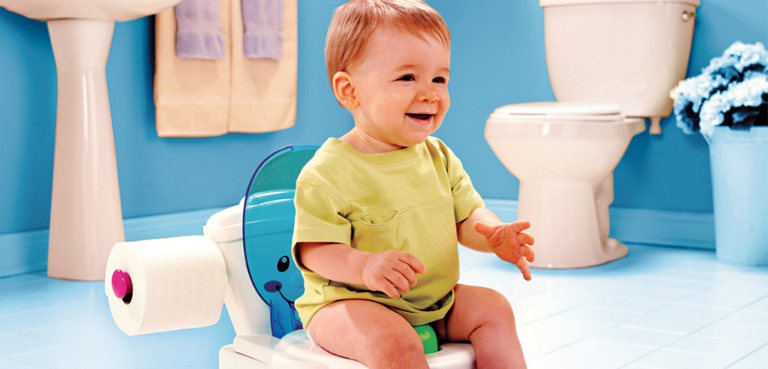
Moms and dads can follow any of the above methods. Before making a choice, carefully read the article and weigh all the pros and cons of potty training.
The game is main activity baby. Any learning process must be accompanied by an interesting fairy tale and adventure.
- Forced to sit on the potty;
- Scold and punish for the "failures" of kids;
- Shame the child.
Usually at the age of 2 - 3 years, with careful explanations, the baby begins to sit on the potty on his own. If this does not happen, do not despair, keep trying. With time nervous system the baby will be formed and he will understand what is required of him.
All that is required of parents is to purchase a potty, be patient, and remind them that it may be time to go to the toilet.
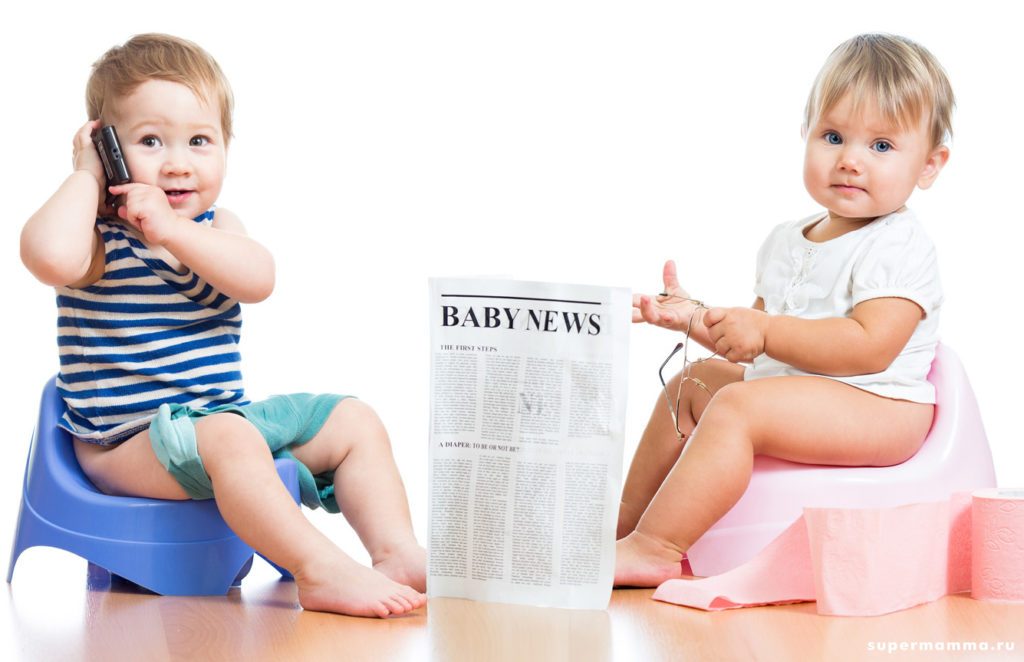
At what age to potty train a boy Komarovsky
Komarovsky is a famous pediatrician. Millions of young mothers and caring grandmothers listen to his advice. His opinions are due to many years of practice in medical practice. That is why, the opinion of the famous doctor is quite weighty.
Dr. Komarovsky fully agrees with the opinion of modern pediatricians and psychologists. He believes that it is possible to teach boys to use the potty only after the child is 1.6 - 2 years old, but not earlier.
And the rules of personal hygiene is an important stage of education. All parents once face the question: at what age should this be done and what methods should be used? Some mothers brag that their baby learned to use the potty even before the age of one. In fact, it is more about developing an unconscious reaction in the baby, rather than the conscious implementation of the necessary acts. Children need to be taught only after they have developed certain skills, and experts have determined the optimal time to start classes.
Recommended time for potty training a child
According to pediatricians, the child should be put on a potty not earlier than 1.5 years. It is from this age that the baby is already able to exercise control over the acts of emptying the bladder and intestines. At the same time, there is also an awareness of natural desires.
It should be noted that this figure is conditional. In some situations, the development of a skill will have to wait.
- If the baby has recently had an illness or is sick. An apathetic and capricious child cannot be taught anything. We'll have to wait for a full recovery.
- If the family has a very tense situation associated with a crisis in relations with parents, illness or death of someone close to them. Children perfectly feel the mood of others, so you should not accustom them to something at a time when thoughts are not devoted to education at all.
- If the family moved to a new place or radically changed the situation in the apartment. Such changes cannot but affect the condition of the child, it is better to wait until he gets used to the new environment.
- If another baby was born in the family. When a double load appears, parents should not rely on their own balance. It makes no sense to potty train an older baby when all the energy is devoted to caring for the younger one.
The learning process will only be successful if the little one already has many useful skills that can be useful to him.
According to statistics, upon reaching the age of one and a half years, children should be able to do the following things:
- walk, sit down, take off and even put on pants;
- understand speech addressed to him, adequately respond to instructions;
- express their desires and emotions, formulate questions with the help of words, intonation, gestures;
- imitate the actions of adults, repeat what is required of them;
- follow the simplest instructions;
- understand what praise is and try to earn it with the right actions.
If the baby already knows all of the above, then problems with getting used to the potty should not arise. If there are doubts about the timeliness of the development of the skill, you can contact the pediatrician who led the child from infancy.
Nobody forbids parents to introduce their little one to the basics of personal hygiene and use of the toilet in more early age even up to a year. But it is worth preparing for the fact that the success of the baby will be insignificant. As practice shows, those children with whom they began to study very early and those with whom all the recommended norms were observed achieve the same results. This is manifested in the fact that babies begin to control their body at about the same time.
- Up to 2-2.5 years, control over bowel movements appears.
- By the age of 2.5-3 years, children can already control daytime urination.
- At 3-4 years old, the child no longer has problems with bladder control at night.
Do not be afraid if the baby has this happens with a slight delay. The numbers shown are not generally accepted and may vary. If this issue worries parents very much, you can consult a pediatrician, but in no case should you take out your anger on the child and assume that he is lagging behind in development.

Stages of training, their features
It is important to understand that accustoming a child to using a new device in just a few days will not work. The learning process should be carried out slowly, smoothly moving from one stage to another. Do not press in case of protests, it will not lead to anything. Parents need the utmost attention and unlimited patience.
Potty training steps
- First of all, the child needs to be introduced to a new subject in the environment. The device should be bright, stable and comfortable, without sharp edges. You need to start little by little, seating the baby in a diaper and panties on his new “chair” a couple of times a day. After a while, you can start taking off your pants.
- After 1-2 weeks, if there are no protests from the baby, you can plant him on the pot without a diaper. It is necessary to ensure that the chair is not cold and unpleasant to the touch. You should not immediately teach the little one to “do everything”, he will not understand. Just twice a day it needs to be planted on a bright "stool". If at some point the training coincides with a bowel or bladder bowel movement, the child must be praised.
- Be sure to show your child the purpose of the new device. Well, if the family has a slightly older child, this will greatly facilitate the process. If not, you just need to try to explain everything in a simple and accessible language. In confirmation of the words, you can even throw a used diaper into the pot.
- When the baby gets used to the new “throne” and begins to sit on it calmly, you can start to catch convenient moments and gradually accustom him to the new way of “going to the toilet”. The main thing is not to show any aggression and excessive zeal. Just after sleeping, walking or eating, you can offer him to sit on a chair. Sometimes parents pick up the signals that children give before emptying the bowels or bladder. They stop playing, freeze, focus on one point. At this point, it is best for them to unobtrusively offer a potty.
- Then the time comes for the final stage, at which the child needs to be taught to use the new device on his own. The subject should always be in the accessibility zone, in the most visible place. It will take some more time to remind the baby that he can now use the potty whenever he wants. As practice shows, children are very fond of doing something without the help of adults and also receive praise for it.
On average, the entire skill development process takes 6 to 12 months. All this time, you can use disposable or reusable diapers, this will not affect the rate of habit formation.
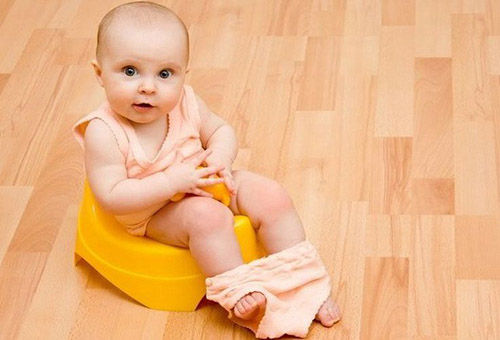
Experts have identified the basic rules for working with a child in the formation of his "toilet skills".
- You can’t forcefully hold on to the potty, it’s not recommended to even strongly persuade the baby. He can get up at any moment and go about his business.
- You can not teach children to a new way of emptying the intestines and bladder, scolding them for forgetting about the potty and wet their pants.
- Right action must be accompanied by praise.
- If, in the process of potty training, the baby has a persistent rejection of the new device, it is necessary to take a break and only after some time try again.
The adaptation itself also plays an important role. When choosing the best option, you need to pay attention to some points.
- It is important to consider what gender the baby is. For boys, there are special devices with an overestimated front. This detail will coordinate the direction of the jet and will not allow you to splatter the floor.
- The item must be comfortable. If it does not fit the child in height or size, presses or rubs, the baby will never get used to it.
- Now appeared wide selection"night vases" with music, lighting and other entertainment details. It is better to immediately refuse such models, children should understand the purpose of the object and not take it for a toy.
- The device should be bright and attractive, so it will quickly attract the attention of the baby.
You need to take pleasure in teaching the little one new skills. Children feel this very well and do everything possible to please their parents.
Absolutely all mothers and fathers are looking forward to the moment when it will be possible to refuse to buy diapers and diapers due to the fact that the child has begun to go to the potty. You can teach your baby to relieve his need in a container specially purchased for this purpose quite quickly. However, not all parents succeed. Possible reasons- inappropriate age, incorrectly selected pot, ignorance of how best to organize this process. How to teach one year old baby to the potty, is it possible at all at this age, how to teach an older baby - these issues should be sorted out.
The opinion of Dr. Komarovsky
Doctor Komarovsky is known to almost everyone. Many mothers and fathers follow the recommendations of a specialist. In one of his television programs, Dr. Komarovsky discussed the topic of potty. He noted that every child is different. There is no specific age when children start going to the potty. Someone starts doing it earlier, and someone gets a little later.
Talking about how to potty train a child, Komarovsky noted that the most suitable age for acquiring "toilet skills" is 22-30 months (that is, not earlier than one and a half years). Why is it at this time that it is recommended to start working with the baby, and not earlier? The answer to this question is simple. At an earlier age, the child's brain is not yet ready to consciously control the acts of defecation and urination, so it is undesirable to think about how to potty train a one-year-old child.
Facts to know
Parents, starting to potty train a child, do not think about what skills are included in the “toilet skill” and whether the baby has mastered them. The following are involved in skill acquisition:
- The baby must feel the pressure of the bladder and intestines, he must understand what these urges lead to, how to respond to them, how to restrain himself (this is what determines the optimal age for potty training a child).
- The kid needs to know where his pot is located, how to take off his clothes and how to sit on the "children's throne".
Why do some children who have learned to use the potty do not control urination? To find the answer to this question, it is worth talking about sphincters. These are the muscles that open and close the intestines and bladder. First, young children learn to control the sphincters of the intestine. First, when the urge to defecate occurs, the child has time to understand what is happening and how to respond to it. The urge to urinate is often sharp, strong and difficult to control. That is why young children learn to control the sphincters of the bladder a little later.
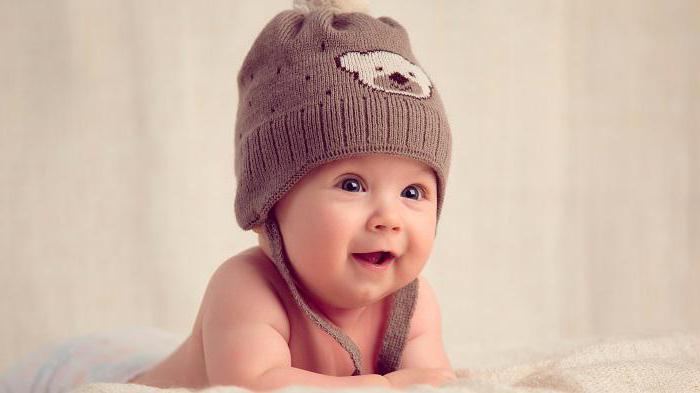
Signs of readiness to master "toilet skills"
Parents who do not know how to teach a child to go to the potty should carefully monitor the baby, because there are certain signs of readiness to master the "toilet skills". These include the following:
- the baby has regular stools;
- in the daytime, the baby's diaper remains dry for 1.5-3 hours;
- baby after daytime sleep stays dry;
- the baby understands what people around him say, responds to requests;
- the child seeks to learn how to take off and put on clothes or already knows how to do it;
- the child does not like to be in wet and soiled pants, he expresses his dissatisfaction about this;
- the baby himself says that he wants to go to the toilet, or brings a dirty diaper, indicates that he has already relieved his need;
- the child begins to prepare to relieve himself, quits playing, goes to a quiet and peaceful place, sits down.
Preparing parents for child education
Before teaching a child to go to the potty, parents should find free time. It is best to plan the learning process for the summer, because in winter children wear warm overalls, tights, panties, and in summer they run only in panties. Underwear little child much easier to take off than other clothes.
Naturally, you need to purchase a pot. You can also buy some colorful books with educational pictures for a child or an interactive doll that can drink and write. Parents will have to show how diapers are removed from the toy, how it sits on the potty, where the “water” comes from. If there is no doll, then you can show the process by your own example. Girls successfully learn from their mothers, and boys from their fathers. An older brother or sister sometimes plays an important role in the learning process.
![]()
Choosing a potty for a child
There are a huge number of children's pots on the shelves of modern stores. There are both simple and original models. When buying a potty, it is recommended to take into account the opinion of the baby. If the child likes the purchased model, then he will strive to use it. For example, you can buy a musical pot, a pot in the form of some funny animal or car, a potty chair.
When buying, it is also important to consider the following characteristics:
- Safety. This feature is the most important. The pot should not have pointed edges, fasteners that can pinch a small child's finger or ass.
- Sustainability. A potty for children, as a rule, stands in a bathroom or toilet room on a tiled floor. That is why it is desirable that the purchased model has rubber tips on the legs. Thanks to them, the pot will not slip.
- Ease of washing. It is much easier to use those pots that have a removable bowl. It can be easily removed and cleaned.
The first stage in learning: using the toilet lexicon
Free time has been found, a potty for children has been bought ... Where to start the process of potty training a child? The first stage is the application of the toilet vocabulary. The child must know what words denote his body parts. It is not recommended for parents to use jargon, because then the baby will call such words when he goes to kindergarten.
Also, the baby should know how actions are indicated. Words like "urination" and "defecation" are not appropriate. They are very difficult for the perception and pronunciation of a small child. Most comfortable simple words and phrases - "go to the potty", "pee", "poop".
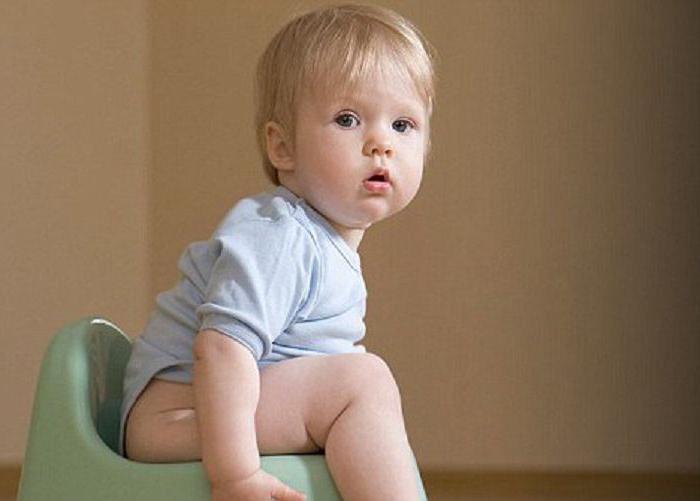
The second stage in learning: linking processes and activities
When thinking about the age at which to teach children to potty, it is worth considering that babies at 1.5-2.5 years old feel the urge and react to them differently. Some run away to modest corners and begin to squat down, the latter try to inform their parents about what is happening with some signs. The task of moms and dads is to help the crumbs form a connection between sensations and further actions.
Parents who notice that their child wants to relieve himself should say a phrase such as “go to the potty” and take the baby to the toilet. One such lesson, of course, will not be enough. This should be repeated regularly until the baby remembers what he needs to do. When the child grows up, parents no longer need to be reminded of the potty. He himself will go to him.
The third stage in training: the acquisition of hygiene skills
After each trip to the toilet, it is recommended to perform hygiene procedures. However, it is impossible to say exactly at what age the child sits on the potty, and then wipes his ass and washes his hands. Toddlers aged 1.5-2.5 years are almost impossible to teach this. Some only master hygiene skills at the age of 4-5, so moms and dads are not recommended to force very small crumbs to perform these procedures.
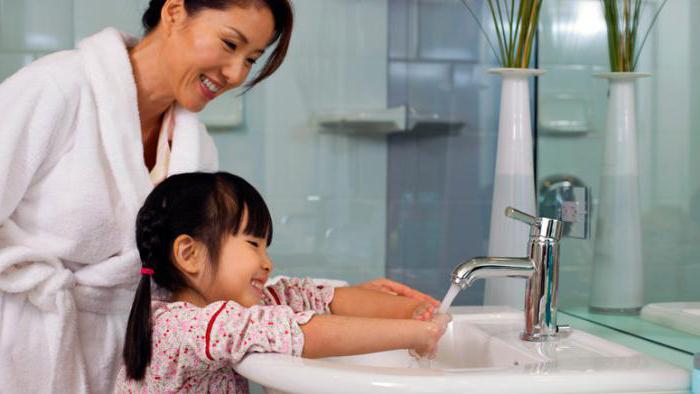
Specialists working with children advise instilling hygiene skills only after the child has been potty trained. Too early actions, as practice shows, do not allow the process to progress. The child can not cope with the huge amount of information received. As a result, he does not learn hygiene skills and does not get used to the potty.
Stage Four in Learning: Applying Praise
All children, without exception, love it when adults praise them for new achievements. For example, if a child asked for a potty and relieved his need for it, did not stain his pants, then you should tell him that he is well done. A great motivation is the issuance of some kind of “awards”. You can stick a bright sticker on the pot after each successful trip.
It is impossible to scold and punish, because in any case there will be mistakes, regardless of the age at which parents start potty training children. If the child has soiled or wet his pants, it is best to simply remove them from him and put on new ones without saying anything. You can just mention that you can’t do this, and remind the crumbs of the existence of a pot. Those parents who scold their children do not achieve the desired results in learning. Babies have a fear of the potty, development is slowed down.
If the baby relieves suddenly
Not all children aged 1.5-2.5 years, when they have a desire to go to the toilet, go to a modest place or give signs to their parents. Some pee in a diaper. At what age should children be potty trained? In such cases, you need to think not about age. It is recommended to try to develop a conditioned reflex - prematurely put the children on the potty. Toddlers will love to always be dry. They will gradually realize that it is better to go to the potty than to "do it in panties."

However, it is not so easy to develop a conditioned reflex, because it is not known when the moment of defecation or urination will come. Parents are encouraged to observe their baby for a couple of weeks and record the time at which those very moments come. According to the results obtained, a pattern is revealed (for example, in some children, urination and defecation occurs after breakfast). There is an easier option - not to watch the baby for 2 weeks, but to put him on the potty every 2 hours.
If the baby refuses to go to the potty and is naughty
"At what age should children be potty trained?" is a question that all parents ask. If the child is 1.5 years old, and he fails to develop a habit, then you should not torment the baby. Perhaps he is not yet ready to master the "toilet skills". Postponing the learning process for a year is the right decision. It's not worth worrying about this. It does not matter at what age the child sits on the potty. Someone learns at 1.5 years, someone at 2 years, and someone at 2.5 years. This is not explained by the fact that one child is smarter than the other. These are just individual characteristics of the body.
Some babies can't be potty trained because they feel comfortable in diapers - urine soaks into the product and leaves the surface dry. Parents who are trying to develop toilet skills in their children are advised to forego the use of diapers during the day and sew panties made of thick fabric. Out of habit, kids will defecate in new products, but they definitely won’t like walking wet. As a result, the problem of how to teach a child to ask for a potty will be solved.
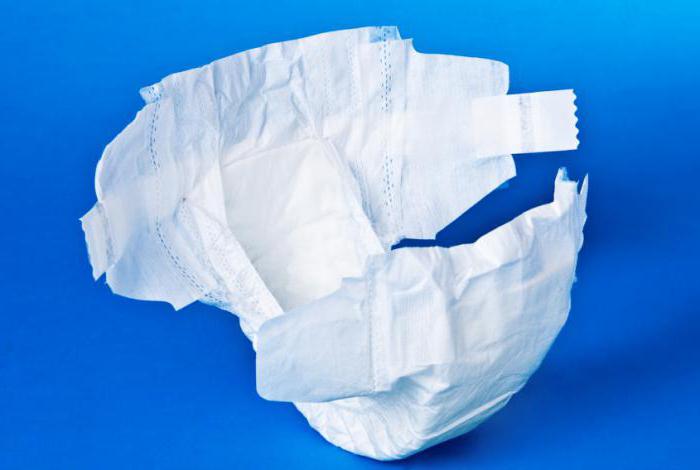
Thus, the process of accustoming to "toilet skills" is not as simple as it might seem at first glance. Parents need a little patience and calmness, because there will be a lot of soiled panties on the way to the potty. Do not worry if there are any problems, think about how to potty train your child. Komarovsky advises to leave the kid alone, who fails to develop a habit, and resume training after a while. All the same, the child, in spite of everything, will learn to use the potty. It only takes time.
The problem of a children's pot is in front of every parent. Some mothers try to accustom a child to this subject almost from the first months of life, trying to develop a conditioned reflex in him. Others are patiently waiting for their beloved child to begin to consciously fulfill their natural needs according to all the rules of society. But by the age of one and a half, their patience comes to an end, and mothers begin to worry if everything is in order with their child.
Sometimes, in order to teach the baby to the potty, parents buy musical pots, forcing children to spend a lot of time on them. Psychologists and pediatricians object to such purchases, focusing on the fact that the management of natural needs cannot be associated with a game in a child.
At what age should potty training start?
Some mothers of babies proudly declare that their baby already knows how to go to the potty and knows what to do with it. The whole process looks something like this: a mother, who knows that the time has come for "wee-wee", puts the baby on the potty and he does his job.
But what is the disappointment of such parents when, their child stops patiently sitting on the potty and jumps up from it every time he is put there.
Pediatricians believe that torturing a baby from such an early age is pointless.
The optimal age when a child can be potty trained is 18 months or so. Immediately you need to make a reservation that this age is considered conditional and it is adjusted based on the physiological readiness of the baby.
What does this indicator include:
- establishing a more or less definite interval between urination and defecation;
- the child is able to keep diapers dry and clean for two hours;
- the child knows parts of the body and items of clothing, understands the meaning of the words "pee(s)" and "poop(s)";
- the child is able to demonstrate dissatisfaction associated with wet and dirty diapers;
- the child tries to take off and put on panties on his own or already knows how;
- the child must be able to say or show that he wants to go to the toilet.
The average age at which a child can sustainably control the process of urination and defecation ranges from 20 to 30 months. This means that up to a year and a half, parents do not have to worry at all whether their baby knows how to use this important accessory or not.
by the most convenient time for potty training is the summer after 18 months of age. Spending a lot of time without a diaper, the child will not only receive, but also learn the basics of "pot science".
By the way, now children's pots are very different: ordinary, musical, in the form of toys (animals, cars) and others. Thinking about the problem of potty training a child of one and a half years, parents are often at a loss as to which one to choose from the proposed abundance so that the process of accustoming goes as quickly and successfully as possible.
Parents who want to use unusual pots (toy pots, melody pots, etc.) are in for a big disappointment. Such purchases will not bring any benefit to your baby.
Musical accessories threaten to form a conditioned reflex, in which the child, having heard a familiar melody, will relieve himself, regardless of where he is at that moment.
Potty toys will also have a negative impact on the process of teaching a child to properly cope with his natural needs. If parents purchase such a pot, then the child will rather begin to use it as entertainment, and not for its intended purpose. In general, such a purchase is also absolutely unacceptable for such an important process.
Thus, we have come to the conclusion that it is best to buy an ordinary potty, which will be perceived by the child as a potty, and not a toy. But, it is not enough to buy an ordinary pot, it is important to be able to choose it correctly.
How to choose the right potty for your child
When choosing a potty for a child, it is important to focus on his age and height, since this item should not be too low.
When planting a baby in a pot, you should follow the rule of right angles, i.e. the back in relation to the hips should be at a right angle, and, accordingly, the hips to the shins. If this rule is violated, then the effort to urinate and defecate will be directed to the diaphragm of the small pelvis of the child, which can subsequently cause a number of serious diseases of the intestines and rectum.
By the way, the pot should not be too high. In this case, the rule of right angles should also work. If it is violated, the child is forced to dangle his legs while sitting, which is also very inconvenient and entails a number of problems. And it's almost impossible to go to the toilet without resting your legs.
It is very good to purchase a potty that has a removable seat. While the child is small, he can do his natural needs on the potty. But as the baby grows and masters this complex science, you can gradually move the removable toilet seat to the adult toilet, which will make it easier for the child to master the new toilet item.
Typical mistakes of parents
Most often, parents make some mistakes when they try to teach a child to properly handle their natural needs at an early age. As a result of this, psychological problems may arise already at an older age: stubbornness, antisocial behavior, stinginess and rejection of both oneself and the people around oneself.
The most common mistakes include an aggressive or overly persistent approach, early potty training when the child is not yet physiologically ready for this process.
It is also wrong to delay the process of potty training or buy it too bright or multifunctional. If the baby did not manage to go to the potty from the first, second and even tenth time, in no case should you scold him, shame or punish him. With such behavior, mom or dad will cause the child to have negative associations with this subject, and the learning process can be very delayed.
It is considered incorrect if the child’s potty training fell at the time of illness, teething, or other ailment. A sick child is capricious, irritable and not at all in the mood to learn anything. You should not load his psyche with new knowledge, it is better to postpone the start of this process by the time the baby is healthy.
It is impossible to resort to stimulation of urination in a child by the sound of water flowing from a tap or a cup. This can form a persistent conditioned reflex in the baby, and in the future such sounds will make him want to go to the toilet. Until the child is completely used to the potty, it is not recommended to give up. They will come in handy when you go to visit and insure the baby at night.
5 steps towards the potty
Psychologists and pediatricians say that in order to successfully master the potty, a child must overcome five basic steps. Let's consider them.
- Physiological readiness.
If a mother persistently teaches a child to the potty from 8 months and the baby shows success, this does not mean that he is psychologically ready earlier than physiologically. There may come a time when, at the age of two, he will stop asking for a potty and will do all his business in pants.
- Getting to know the pot. The pot should have its place in the apartment, is in the field of view of the child. In no case should you play with this item, otherwise the baby will perceive it as entertainment, and will not want to use it for its intended purpose. It is necessary to tell what to do with this pot, how and why it appeared here. Only after the child gets used to the new object, you can slowly plant him on the potty.
- Regular planting. At certain times, for example, after or eating, it is necessary to plant the child on the potty. After he does his business, you need to praise him. Regular planting will become a habit for the baby, which will bring both the mother and the child closer to achieving the goal.
- We seize the moment. This stage is similar to the previous one, but such planting should be done during the day. It is important that the mother notice when the child is trying to retire to urinate and put him on the potty. If there is a positive result, the baby must be praised very actively, but if something did not work out, it is by no means possible to scold him.
- We teach the baby to take off his pants on his own. When the child masters all five steps, he himself will begin to try to sit on the potty and achieve results.
As soon as a logical chain is built in the child’s head from the sequence of the above actions, the problem with the potty will disappear.
Instead of a conclusion
The road to the potty is a very important stage in the life of the baby, and how quickly and successfully he will overcome it depends on the patience of his parents. Parents should not forget that a child who has learned to sit on the potty correctly and on time is worthy of praise.
Accidental misses should not be punished, so as not to accidentally frighten the baby. To speed up this process, it is important to know how to choose a pot and which type to give preference to. Praise your child more often, because how joyful his life will be, and how successfully he will comprehend new horizons, also depends on the parents.
The explicit and implicit rules of the family help to distribute responsibilities between its members long before they appear in the family. little man. With the birth of a child, a lot of things change, and above all, agreements about who should maintain cleanliness and order in the house.
Ideally, they should be as flexible as possible and allow family members to delegate authority to each other, taking into account who is the least loaded at a particular moment and who, for example, scheduled cleaning will not be a burden.
Family members should move away from imposed standards - housework should not fall entirely on the shoulders of a woman, especially if a baby is born.
As the child grows, it becomes necessary that he gradually accustom himself to the rules and order. This is due not only to the desire of parents to make life easier for themselves, but also to the fact that uncontrollable emotions and momentary desires of the child must eventually become controlled. This is not a one-time process. Without the guidelines set by the parents, the child will not feel confident, will not feel integrated into the process of joint activities in the family. Therefore, connivance with all desires is not an option. Education must be systemic.

We accustom to homework daily and hourly
The need for cleanliness in each family is very individual. For some, daily dusting and mopping is the law, but for some, dry cleaning the sofa is a whole event that should be prepared in advance.
But, regardless of family traditions, there are those things that the child will do willingly, and those that will not be very pleasant to him. The task of good educators, which are the parents, is to expand the list of the first as much as possible and teach the son or daughter to be patient with discomfort while doing unloved chores around the house.
Another outstanding Soviet teacher Vasily Sukhomlinsky noticed that everyone little man there is a natural need for activity, for work. Attentive parents and those who have observed the development of a child cannot fail to note in him the phase of the emergence of a desire to help. This usually happens in preschool age. If you skip this initiative or rudely suppress it, motivating the refusal by the clumsiness of the child or by the fact that "mother will do faster and better", then you can forever destroy his self-confidence and discourage him from acting. Instead, it is better to allocate a field for activities where the baby can feel needed, and his help is significant and meaningful for adults.
The first tasks for the baby may be: keeping the toys in order, washing your cup after drinking tea, wiping the crumbs on the kitchen table, watering indoor plants. Already at the age of five, the child must be taught to make the bed after sleep - straighten the sheet, lay the bedspread.
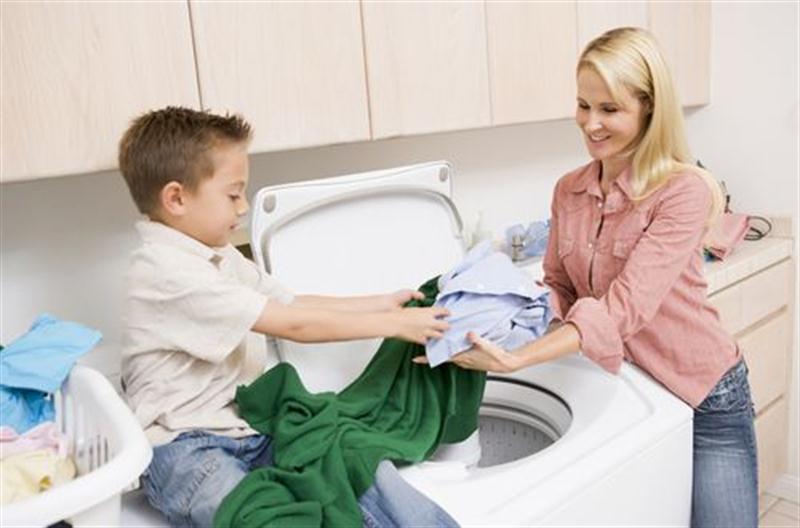
Later, when the child has his own room, dry and wet cleaning of the nursery can become errands. At the same time, at first, parents should not only give the task, but also explain how it is best to complete it, help the baby learn new skills. And be sure to praise for diligence and diligence.
A younger student should already have systematically performed tasks: putting things in order in his room, feeding pets, helping mom set the table, etc. Assignments should be feasible in terms of volume and time of execution and regular, because only in this way the child will form a habit. And in the future, a responsible and caring little man will grow in the family.
Good luck in your new endeavors for the benefit of the family!
Why don't you be the first to know about everything? Subscribe to blog updates right now!
